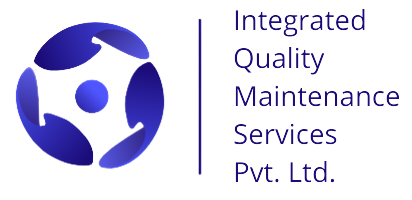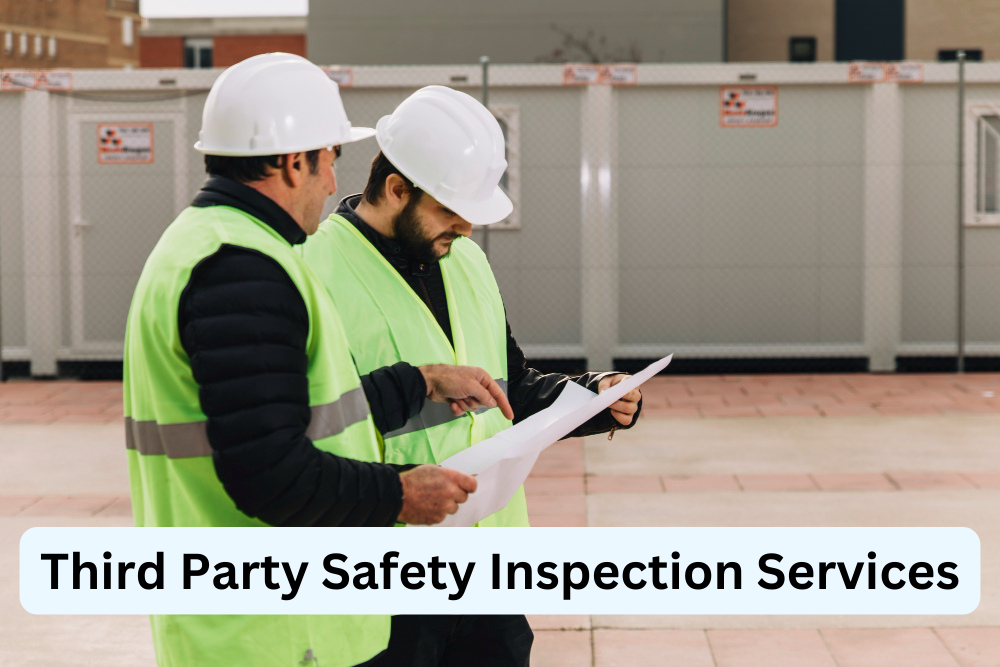Introduction
Ensuring safety within residential, commercial, and industrial settings is paramount. Third party safety inspection services play a crucial role in maintaining compliance with safety standards and reducing the risk of accidents. In Jaipur, a growing city with diverse industries and a rich cultural heritage, the demand for rigorous safety inspections is ever-increasing. This article delves into the various aspects of third party safety inspection services in Jaipur, highlighting their importance, process, and benefits.
Types and Categories
Residential Safety Inspections
Residential safety inspections focus on ensuring that homes and apartment buildings comply with safety standards. This includes checking structural integrity, electrical systems, fire safety measures, and environmental hazards like mold or asbestos.
Commercial Safety Inspections
Commercial properties such as office buildings, shopping centers, and hotels require regular safety inspections to protect employees, customers, and assets. These inspections often cover fire safety, electrical systems, emergency exits, and structural stability.
Industrial Safety Inspections
Industrial safety inspections are critical for factories, warehouses, and manufacturing plants. These inspections ensure that machinery is safe to operate, hazardous materials are properly handled, and workers follow safety protocols to prevent accidents.
Construction Safety Inspections
Safety inspections on construction sites are vital to prevent accidents and ensure that all building practices comply with local safety regulations. Inspectors check for proper use of personal protective equipment (PPE), safe scaffolding, and secure handling of materials.
Environmental Safety Inspections
Environmental safety inspections assess the impact of industrial activities on the surrounding environment. This includes checking for proper waste disposal, air and water quality, and adherence to environmental protection regulations.
Fire Safety Inspections
Fire safety inspections are essential for all types of properties. Inspectors evaluate the effectiveness of fire detection and suppression systems, emergency exits, and fire drills to ensure readiness in case of an emergency.
Benefits of Third Party Safety Inspections
Improved Safety Compliance
Engaging third party safety inspection services ensures that businesses comply with the latest safety regulations, minimizing the risk of fines and legal issues.
Reduced Risk of Accidents
Regular safety inspections help identify potential hazards before they cause accidents, leading to a safer environment for employees and residents.
Enhanced Operational Efficiency
By addressing safety issues proactively, businesses can avoid disruptions and maintain smooth operations, ultimately enhancing productivity and efficiency.
Better Insurance Rates
Properties with a good safety record often benefit from lower insurance premiums, as insurers recognize the reduced risk of accidents and claims.
Key Safety Standards
National Building Code of India (NBC)
The NBC provides guidelines for the construction and maintenance of buildings to ensure safety and sustainability. Compliance with these standards is mandatory for all new constructions.
Occupational Safety and Health Administration (OSHA) Guidelines
OSHA guidelines set the standard for workplace safety, covering various aspects such as machinery safety, hazardous materials handling, and employee training.
Bureau of Indian Standards (BIS) Safety Norms
BIS safety norms encompass a wide range of products and services, ensuring that they meet specific safety and quality standards.
Environmental Protection Regulations
These regulations aim to minimize the environmental impact of industrial activities by enforcing proper waste management, pollution control, and resource conservation practices.
Common Safety Hazards
Structural Integrity Issues
Weak or damaged structures can pose significant safety risks, leading to collapses or other accidents.
Electrical Hazards
Faulty wiring, overloaded circuits, and improper use of electrical equipment can cause fires or electrocutions.
Fire Risks
Inadequate fire safety measures, such as blocked exits or malfunctioning fire alarms, can result in devastating fires.
Chemical Exposure
Improper handling or storage of hazardous chemicals can lead to spills, explosions, or health issues for workers.
Ergonomic Hazards
Poor workstation design or repetitive motions can cause musculoskeletal disorders and other health problems.
Environmental Contaminants
Pollutants such as asbestos, mold, and industrial waste can have severe health impacts on residents and workers.
Process of Safety Inspection
Initial Consultation and Risk Assessment
The inspection process begins with an initial consultation to understand the specific needs and risks of the property. This involves a preliminary risk assessment to identify potential hazards.
Detailed Safety Audit
A comprehensive safety audit is conducted, covering all aspects of the property’s safety, including structural integrity, electrical systems, fire safety, and environmental hazards.
Compliance Check
Inspectors check for compliance with local, national, and international safety standards, ensuring that the property meets all regulatory requirements.
Reporting and Documentation
A detailed report is prepared, outlining the findings of the safety audit and recommending corrective actions. This report serves as a crucial document for compliance and future inspections.
Follow-up and Re-inspection
After the initial inspection, follow-up visits are scheduled to ensure that all recommended actions have been implemented and to re-assess the property’s safety.
Tools and Equipment Used
Inspection Cameras
High-resolution cameras are used to inspect hard-to-reach areas and document potential hazards.
Thermal Imaging Devices
Thermal imaging devices help detect electrical faults, insulation issues, and overheating machinery.
Gas Detectors
Gas detectors are essential for identifying leaks and ensuring safe levels of hazardous gases in industrial environments.
Electrical Testing Instruments
These instruments are used to test the safety and efficiency of electrical systems, ensuring compliance with safety standards.
Safety Software and Apps
Advanced software and mobile apps streamline the inspection process, enabling real-time data collection and analysis.
Regulatory Framework in Jaipur
Overview of Local Safety Regulations
Jaipur follows a stringent set of safety regulations to protect its residents and workers. These regulations cover various aspects of building safety, workplace safety, and environmental protection.
Key Regulatory Bodies
The primary regulatory bodies in Jaipur include the Jaipur Municipal Corporation, the Rajasthan State Pollution Control Board, and the Department of Factories and Boilers. These organizations oversee the implementation of safety standards and conduct regular inspections.
Compliance Requirements for Businesses
Businesses in Jaipur must adhere to local safety regulations, which involve regular inspections, safety audits, and compliance with specific safety standards.
Penalties for Non-compliance
Non-compliance with safety regulations can result in severe penalties, including fines, closure of business operations, and legal action.
Choosing a Third Party Safety Inspection Service
Factors to Consider
When selecting a third party safety inspection service, consider factors such as experience, expertise, and reputation. Look for companies with a proven track record in conducting thorough and accurate inspections.
Evaluating Credentials and Certifications
Ensure that the inspection service has the necessary credentials and certifications from recognized authorities. This guarantees that they are qualified to perform safety inspections.
Reading Reviews and Testimonials
Customer reviews and testimonials provide valuable insights into the quality of service and customer satisfaction. Look for feedback from previous clients to gauge the reliability of the inspection service.
Comparing Service Packages and Pricing
Compare different service packages and pricing to find a solution that fits your budget and meets your specific needs. Consider the scope of the inspection and the level of detail provided in the reports.
Case Studies
Success Stories from Various Industries
Highlighting success stories from different industries demonstrates the effectiveness of third party safety inspections. These case studies showcase how businesses have improved safety and compliance through regular inspections.
Lessons Learned from Major Safety Incidents
Analyzing major safety incidents provides valuable lessons on the importance of safety inspections. These incidents highlight common hazards and the need for proactive safety measures.
Impact of Safety Inspections on Local Businesses
Safety inspections have a significant impact on local businesses, helping them avoid accidents, reduce operational costs, and improve overall safety standards.
Expert Insights
Interviews with Safety Professionals
Interviews with safety professionals offer expert insights into the latest trends and best practices in safety inspections. These professionals share their experiences and advice on maintaining a safe environment.
Advice from Industry Experts
Industry experts provide valuable advice on complying with safety regulations, conducting effective safety audits, and implementing corrective actions.
Latest Trends in Safety Inspection Services
Stay updated with the latest trends in safety inspection services, including advancements in technology, changes in regulations, and emerging safety standards.
Future of Safety Inspections
Emerging Technologies
Emerging technologies such as drones, artificial intelligence, and the Internet of Things (IoT) are revolutionizing safety inspections, making them more efficient and accurate.
Evolving Safety Standards
Safety standards are continually evolving to address new risks and challenges. Keeping up with these changes is crucial for maintaining compliance and ensuring safety.
Predictions for the Next Decade
Predicting future trends in safety inspections helps businesses prepare for upcoming challenges and opportunities. Experts anticipate increased use of technology and stricter safety regulations in the coming years.
FAQs
What is a Third Party Safety Inspection?
A third party safety inspection is an independent assessment conducted by a qualified inspection service to evaluate the safety of a property or workplace. These inspections help ensure compliance with safety standards and identify potential hazards.
Why are Safety Inspections Important?
Safety inspections are important because they help prevent accidents, protect workers and residents, and ensure compliance with safety regulations. Regular inspections can also lead to lower insurance premiums and improved operational efficiency.
How Often Should Inspections be Conducted?
The frequency of inspections depends on the type of property and the specific risks involved. Generally, residential properties should be inspected annually, while commercial and industrial properties may require more frequent inspections.
What Happens During a Safety Inspection?
During a safety inspection, inspectors assess various aspects of the property’s safety, including structural integrity, electrical systems, fire safety, and environmental hazards. They document their findings and provide recommendations for corrective actions.
How to Prepare for a Safety Inspection?
To prepare for a safety inspection, ensure that all areas of the property are accessible and that any known issues are addressed beforehand. It’s also helpful to have relevant documentation, such as previous inspection reports and maintenance records, readily available.
Conclusion
Regular safety inspections are essential for maintaining a safe and compliant environment. By engaging third party safety inspection services, businesses and property owners in Jaipur can ensure that they meet all safety standards and protect their employees and residents. For more information and to schedule a safety inspection, contact your local safety inspection service today.


